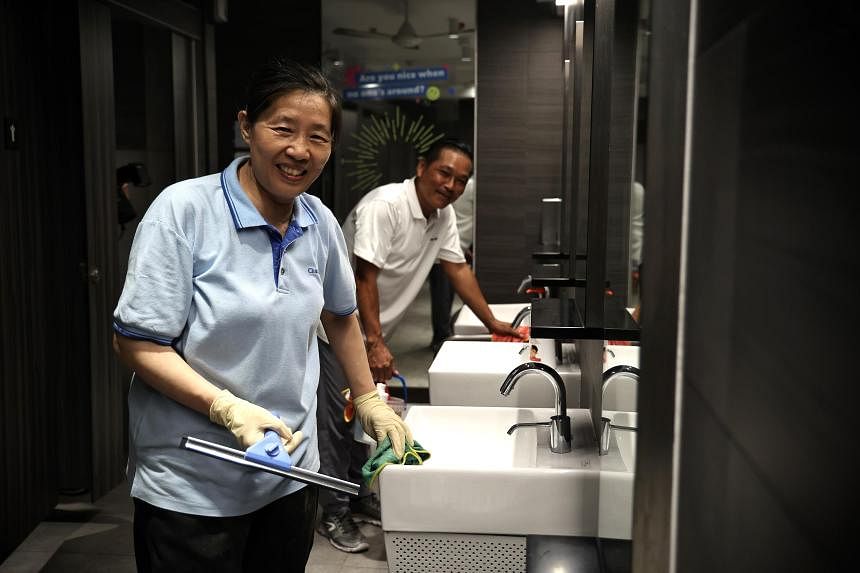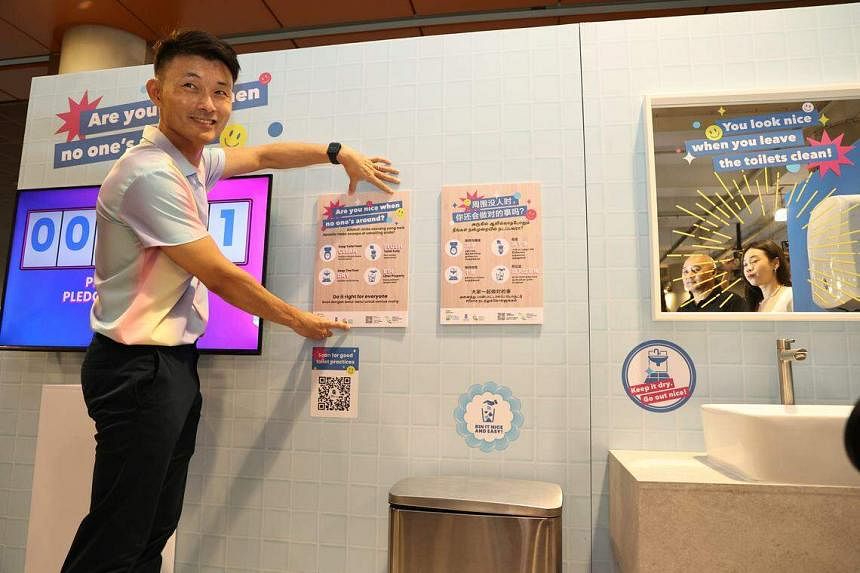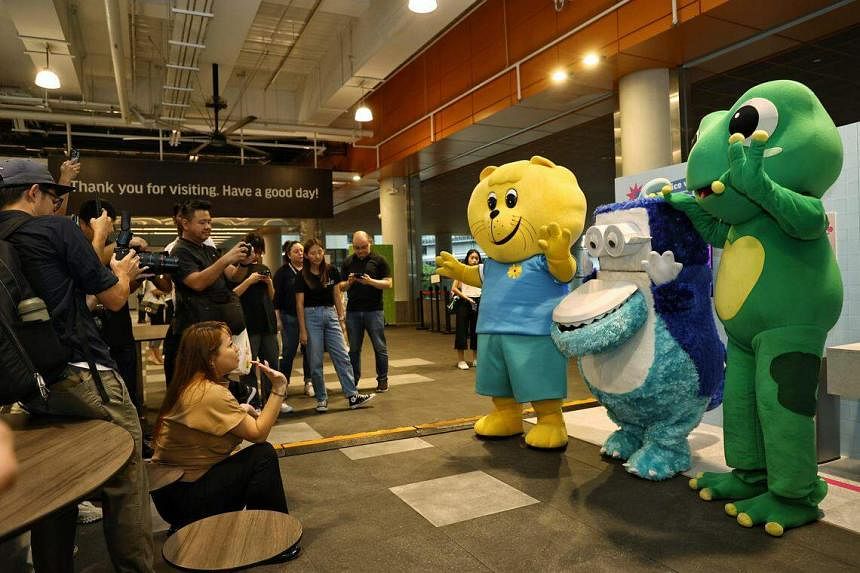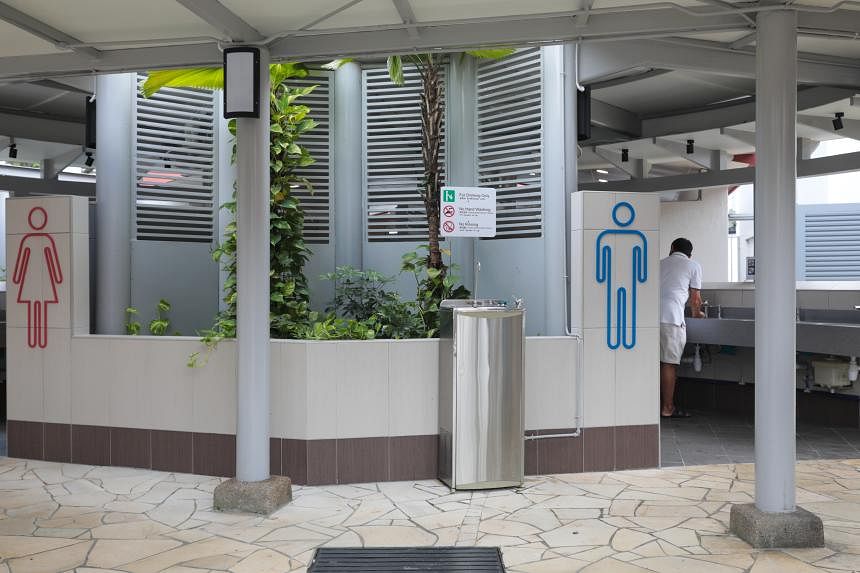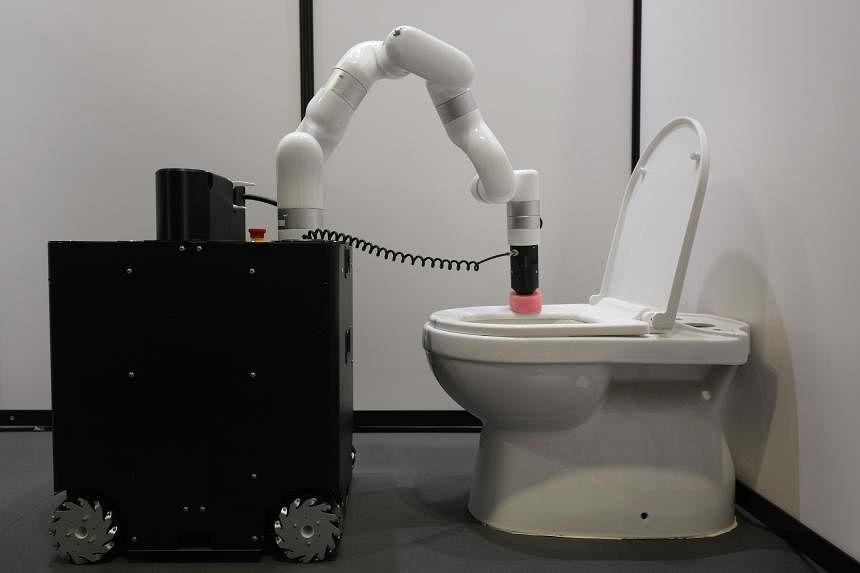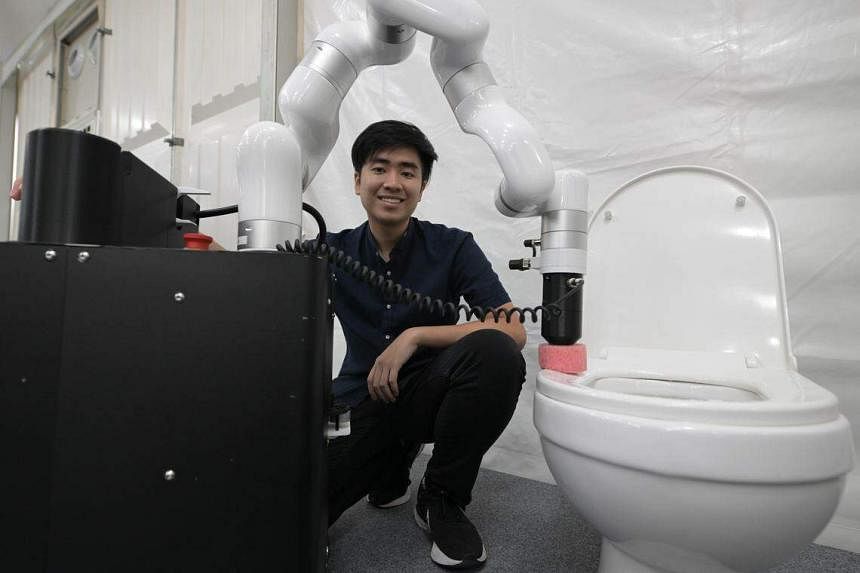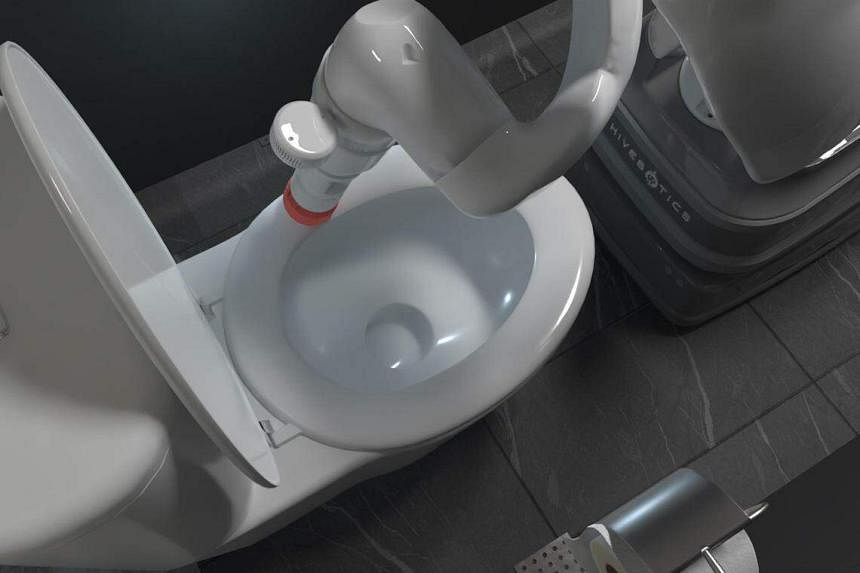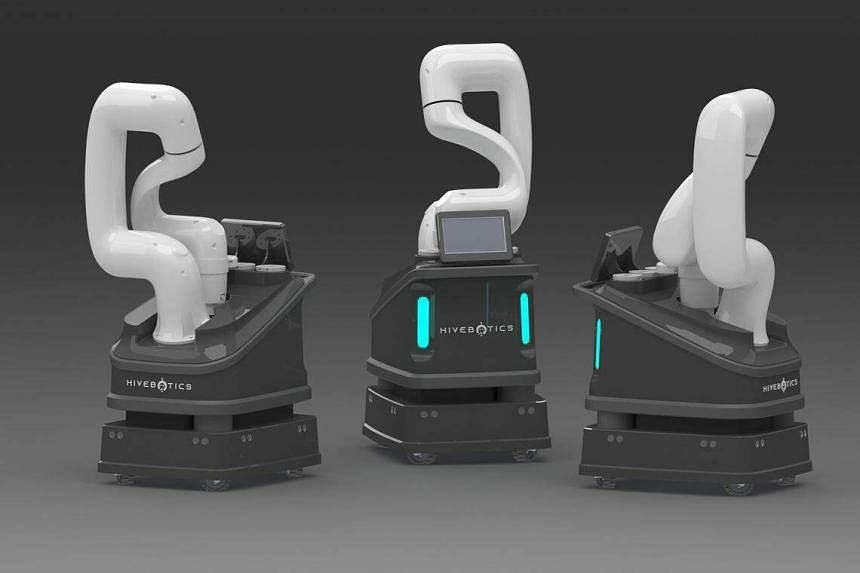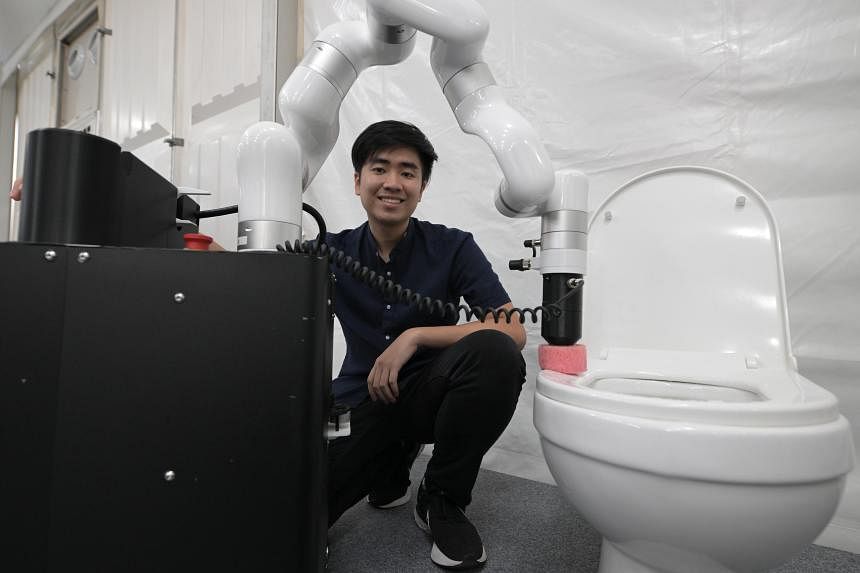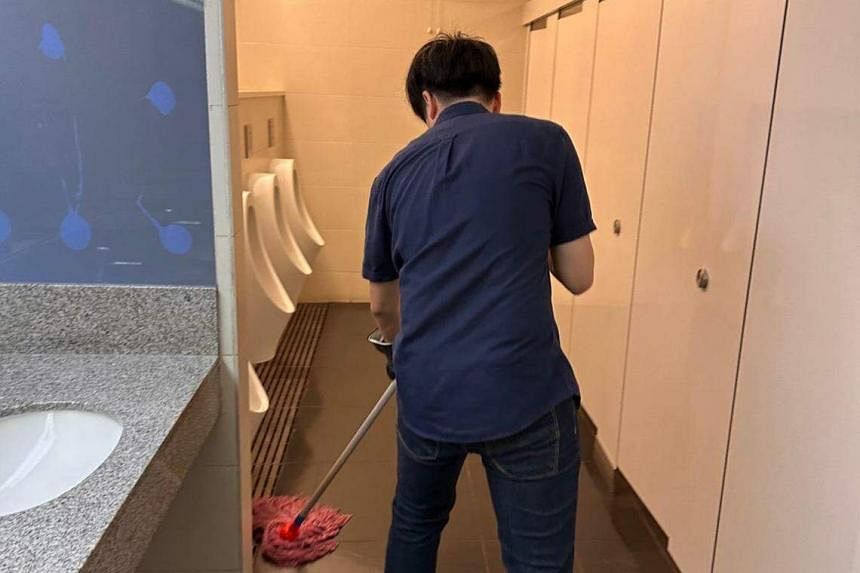Autonomous cleaning bot to start scrubbing public toilets in early 2024
The autonomous robot moves around the loo seeking out stains and areas to clean, guided by sensors. ST PHOTO: NG SOR LUAN
Osmond Chia
DEC 4, 2023
SINGAPORE - Keeping public toilets clean has been a long-time bane for cleaners here. But they will soon receive a helping hand to scrub, mop and dry toilets from a new colleague: a toilet-cleaning robot.
The autonomous robot moves around the loo seeking out stains and areas to clean, guided by sensors that give it a 3D view of its surroundings.
When there is a job to do, its swivelling arm picks up implements from a utility rack, like brushes and a steam spray attachment to blast stubborn stains and bacteria away.
Dubbed the Abluo – Latin for “cleanse” – the robot is intended to halve the time that human cleaners typically spend cleaning toilets so that they can focus on other tasks, said Mr Tuan Dung Nguyen, co-founder of HiveBotics, the cleaning automation start-up behind the robot.
Abluo, which began development at the start of 2021 and received support from the National University of Singapore (NUS) and JTC Corporation, is being trialled in toilets at industrial parks, hospitals, malls and the airport.
The robot’s public testing phase will begin in the second quarter of 2024, marking the final stage of its development before its commercial launch in July, said Mr Nguyen, 23, a mechanical engineering graduate who started the company with co-founder Rishab Patwari, 26. The pair met when they were students at NUS.
The inspiration to build a toilet-cleaning robot came after Mr Rishab’s friend, who owns a cleaning company, had to clean toilets himself due to a shortage of cleaning staff.
Keen to understand more about the needs of the public toilet cleaning sector, the pair applied for work attachments with cleaning service providers at NUS, malls and hotels in stints between January and September 2023.
“It was a very important learning process for us,” Mr Nguyen told The Straits Times. “The cleaners were very nice and they taught me how to clean efficiently and mix chemicals to get the best results.”
The insights gleaned from the experience enabled them to improve the tools and software to build a useful cleaning robot.
For instance, for the robot to reliably scrub away stains and wads of dried-up toilet paper, the team developed a steam spray attachment.
To simulate faecal stains to test the robot’s cleaning capabilities, the team used a chocolate mixture but found that chocolate would disintegrate more easily than the real thing. They then developed a mix of miso paste, yeast and other ingredients to form a stickier substance.
In its current form, Abluo is built to clean urinals, toilet bowls, sinks and mirrors.
It operates under the watchful eye of a human cleaner, who first inspects the toilet’s condition and carries out tasks the robot cannot yet do.
Co-founder and COO of HiveBotics Tuan Dung Nguyen with the company’s toilet cleaning robot. ST PHOTO: NG SOR LUAN
The HiveBotics team also needed to train the robot to recognise when a toilet is clean. Mr Nguyen said: “A robot can’t tell whether a place is clean like humans can with their (five) senses, so we needed to create a metric for the robot that quantifies what it sees.”
To measure cleanliness, the robot will soon be equipped with an ultraviolet sensor to detect stains that are invisible to the eye.
The HiveBotics team is working to upgrade the robot to mop floors and flush toilets, said Mr Nguyen.
HiveBotics’ toilet-cleaning robot assistant cleans toilet bowls, urinals, sinks and mirrors, as well as sanitises surfaces using a steam-cleaning system. PHOTO: HIVEBOTICS
Keeping toilets clean has long been a headache for the National Environment Agency, which in November refreshed its Clean Public Toilets campaign for the fifth time to urge the public to be responsible toilet users.
The HiveBotics project caught the attention of JTC’s LaunchPad initiative, which supports start-ups with resources to develop innovations and networking opportunities with investors, said Ms Priscilla Lau, manager of infocomm media and start-ups cluster at JTC.
When there is a job to do, the robot’s swivelling arm picks up implements from a utility rack, like brushes and a steam spray attachment to blast stubborn stains and bacteria away. PHOTO: HIVEBOTICS
NUS has also offered support to HiveBotics’ robot, which was brought to the university as a prototype in 2021, under its Graduate Research Innovation Programme. The programme provides researchers resources and funds of up to $100,000 to help them commercialise innovations.
NUS Enterprise associate vice-president Benjamin Tee said the project addressed the often overlooked but essential task of toilet cleaning.
“This is a very complex operation to automate,” said Prof Tee, “and it has the potential to address strategic challenges that Singapore and other developed economies faces such as manpower shortages and rising labour costs.”
